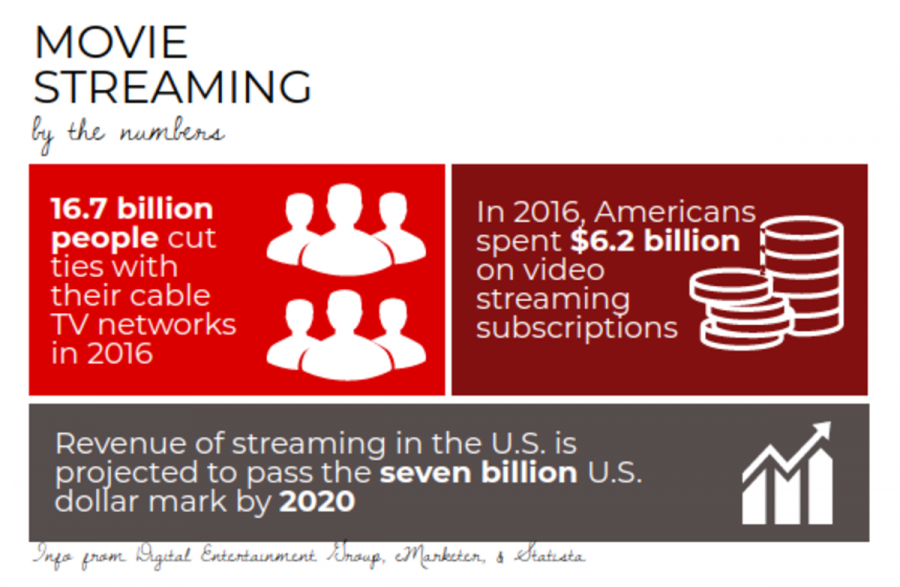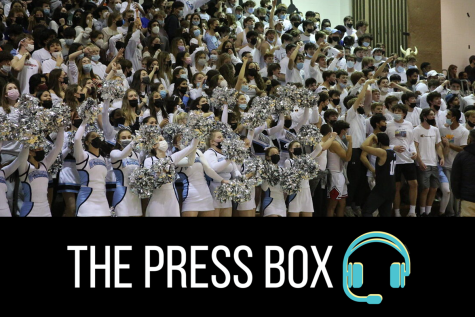Streaming services grow in popularity
January 31, 2018
It’s a cold winter night, and staying in with a movie and hot chocolate seems like the perfect choice. But before deciding which movie to watch, it’s important to consider which streaming service will have the widest variety of high-quality films. Between Netflix, Amazon, HBO Go and many other streaming services, picking the best service may prove harder than choosing the movie itself.
As music and TV streaming services have reached the forefront of the entertainment industry, they’ve also become a main source of entertainment for teachers and students alike.
The market for streaming services is growing quickly: in 2016, Americans spent $6.2 billion on video streaming subscriptions, the Digital Entertainment Group reported, while 16.7 billion people cut ties with their cable TV networks, the research firm eMarketer reported.
Not only has the television industry been changed, but also music, as it is common to subscribe to a streaming program.
“When I first heard about Spotify, I started to use it for music, and now everybody does,” sophomore Clara Russ said. “It’s become so common.”
As these services’ popularity has increased, so has the number of options. Many people watch movies and TV shows through popular streaming services like Netflix, Amazon, Hulu and HBO Go instead of seeing them in the theater or watching them live.
Junior Alejandro Garzon believes applications such as Netflix and Hulu increase the viewer’s choice in what they watch because they aren’t limited to what’s on TV or playing in theaters.
“Even though you do pay monthly, you’re able to kind of take the time and look at genres you want to watch and be able to have your own choice,” Garzon said.
Efe Ebdevie, head of corporate sponsorship of MUSIC Matters at the University of Michigan, says that streaming services have altered the way music is consumed.
“Instead of buying individual songs, you have access to a vast catalogue of music, and I think that makes music more accessible and discoverable than it has ever been,” he said. “We’re living in an era of music consumption that has really empowered the listener and put more control in their hands.”
Senior James Krauland, who helps coordinate Whitman’s monthly CoffeeHouse concerts, has added many new songs to his library through his Spotify membership. Krauland likes the flat fee policy, saying it gives him access to a much wider range of music than individually buying songs.
“Since getting Spotify last year, I’ve probably gathered several hundred dollars’ worth of music in my library, and I’ve been able to find new music much more easily,” he said. “With this much variety I’m pretty much always listening to something. I’ve always got at least one earbud in.”
Senior president of MUSIC Matters Matt Ladis spoke to the heads and representatives of various streaming services on a club-related trip to Los Angeles. While some entertainment executives praised the increase of streaming services, others were anxious about fair artist compensation. Artists fighting what they see as unfair compensation for their work on these platforms is a common conflict, he said.
“At the end of the day, streaming is only getting bigger and continues to innovate, so those who adapt will make it,” Ladis said.







